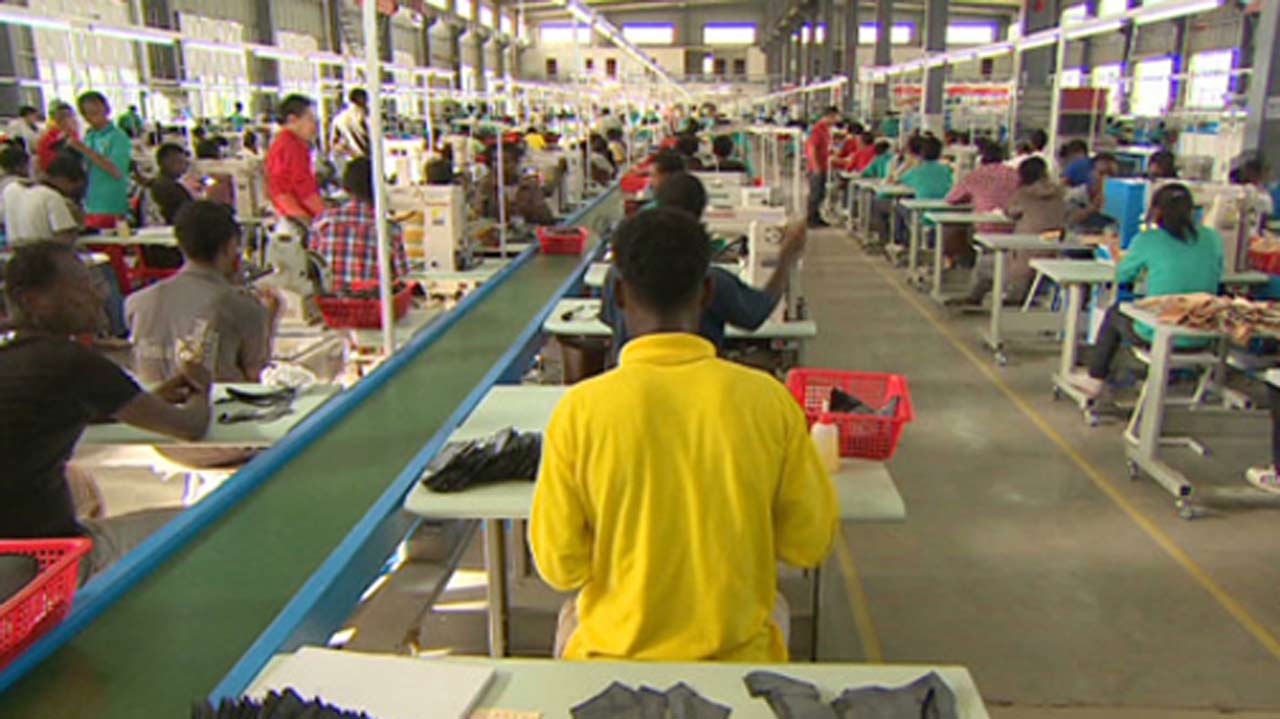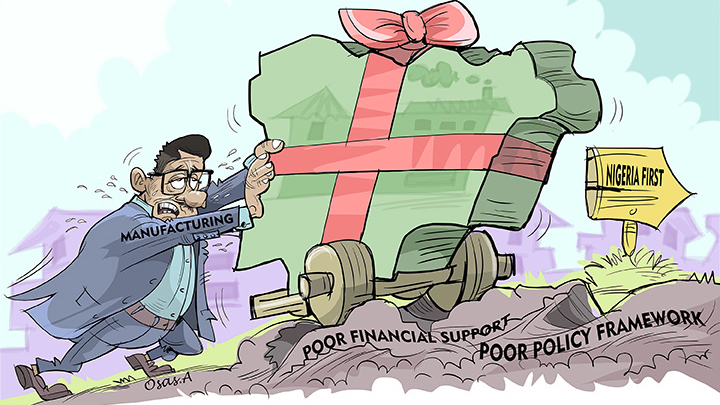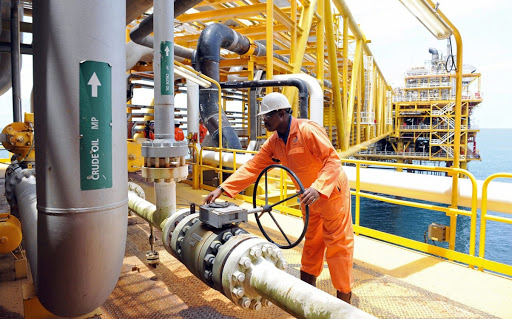 The confidence of local manufacturers further dipped to 54.1 points in the first quarter, compared with 55.0 points recorded in the previous quarter.
The confidence of local manufacturers further dipped to 54.1 points in the first quarter, compared with 55.0 points recorded in the previous quarter.
The aggregate Manufacturers CEO’s Confidence Index (MCCI) of the Manufacturers Association of Nigeria (MAN) showed that all major performance indicators (MPIs) of the sector recorded unfavorable changes, including Employment Condition (Rate of Employment), which also declined from 51.3 points to 50.7 points.
It added that employment condition for the next three months is projected to further plunge below the benchmark points to 47.8 points against the 48.8 points obtained in the preceding quarter just as production level for the same period, is projected to nosedive to 61.8 points from 62.2 points recorded in the last quarter of 2022.
Manufacturing activities in the first quarter of 2023 were adversely affected by an escalation in the Consumer Price Index (CPI), continuous erosion in naira value and difficulty in accessing FX, high cost of energy, exorbitant taxes, high lending rates, persisting insecurity and the consequences of lingering Russian-Ukrainian war.
“Amidst the harsh business-operating environment evidenced by poor macroeconomic indices, the underperformance was largely driven by the nationwide cash crunch in the first quarter of the year,” it said.
It also said the economic turmoil significantly crushed consumer patronage and disrupted the manufacturing value chain in most periods of the quarter.
“Although the quarter recorded marginal contraction in the index score, the untoward hardship meted on the manufacturers is growing overwhelming and diminishing the resilience of the sector,” it added.
The MCCI is a quarterly research publication of MAN, which measures changes in the pulse of operators and trends in the manufacturing sector quarterly, in response to movements in the macro-economy and government policies, using primary data mined through direct surveys of CEOs of MAN member companies. It is computed using data generated on standard diffusion factors of current business condition, business condition for the next three months, current employment condition, employment condition for the next three months and production level for the next three months.
Across sectoral groups, operators in the electrical/electronics and motor vehicle and miscellaneous assembly with respective index scores of 49.7 and 48.6 exhibited gross loss of confidence as they fell below the 50-point benchmark. These sectoral groups, the report said, were adversely affected by poor electricity supply and instability of macroeconomic indicators, which have significantly worsened sales performance in these sectoral groups.
Similarly, among industrial zones, activities in Kaduna (49.5 points), Abuja (48.6 points), Rivers/Bayelsa (46.2 points) and Cross-Rivers/Akwa-Ibom (43.9 points), were depressed by the high cost of operation in the first quarter of 2023 as underlined by their index scores, which fell below the benchmark points. The scores indicate that manufacturers operating in the zones have lost confidence in the economy due to the persistent harsh operating environment in their zones. “Manufacturers are extremely groaning in pain due to these issues that are frustrating their contribution to the economy,” the association said.
The study further revealed that manufacturing activities continue to suffer due to persisting FX scarcity and unfavourable Naira exchange rate parity. The lingering FX scarcity and continuous depreciation of the Naira, it said, have left manufacturers bleeding and limited their capacity utilisation, since the importation of non-locally produced critical input has become a nightmare.
It also said that interest rate charged to manufacturers by commercial banks appears to have deteriorated the productivity of the manufacturing sector in the quarter under review.
“Highly exorbitant double-digit lending rate of about 30 per cent has rendered several manufacturers uncompetitive and contributed to declining investment in the sector. The size of loans given to us by commercial banks is grossly inadequate and does not encourage productivity. While credit to the public sector has soared over the years, credit support for the private sector in general and manufacturers has been abysmally low. The implication is low investment, limited capacity utilisation and low production levels. The absence of economic infrastructure contributes significantly to the high cost of operation, which obstructs the development of manufacturing in Nigeria,” it said.
The study also pointed out that production and distribution costs escalated by 24 per cent in the quarter under review, much higher than the 19 per cent increase witnessed in the preceding quarter while capacity utilisation nosedived further by five per cent and production volume contracted by 13 per cent.
“Manufacturing investment dropped by three per cent from two per cent increase recorded in the preceding quarter; manufacturing employment reduced further by three per cent just as sales volume plummeted by 13 per cent in the first quarter of 2023. Cost of shipment also rose by 20 per cent.”
Ranking current challenges in order of severity of impact, multiple taxes/charges/levies were top on the list, followed by inadequate power supply, low patronage/poor sales/low purchasing power, unavailability of raw materials/delay in receiving imported raw materials/high cost of raw materials and FX scarcity/high exchange rate/poor FX allocation.
“Marginal contraction portends that the untoward hardship meted on manufacturers is growing overwhelming and diminishing the resilience of the sector. Therefore, tackling the challenges of the manufacturing sector must be at the front burner of this administration. The President must rescue manufacturers from these inflictions by first and foremost, improving FX availability.
“Prioritise FX intervention through the official market, particularly to support raw materials and machine needs of the industries; Improve FX allocation to the industrial sector and enhance the capacity of designated banks to efficiently process application of FX by manufacturers; grant concessional FX allocation at the official FX market to industries for the importation of productive inputs that are not locally available and truly unify the various FX windows in the country.”
“Electricity supply to industries must be improved upon. Government should commit to upscaling electricity generation by at least 10,000MW, encourage further investment in the electricity value chain, generation, transmission and distribution; sustain the eligible customer initiative to improve electricity supply to the manufacturing sector and embrace and support significant development of energy mix and renewables.
“The country has huge potential for solar and wind energy sources. As a matter of urgency, we must also resuscitate the existing national refineries to produce fuels locally; allow gas to be supplied to domestic users including manufacturers at an international export price plus $1; that $3.2+$1 rather than the current $8.76 per cubic metre and urgently commission the Chiyoda Group that built the national refineries originally to carry out a Turnaround Maintenance of the four refineries.
“We must as a matter of urgency, reduce the number of taxes payable by industries; publish the list of approved harmonised taxes and levies for the manufacturing sector by the Joint Tax Board (JTB); commence implementation of the harmonised taxes and levies project which should be monitored and enforced strictly by the JTB; jettison the proposed increase in excise duties; develop a comprehensive and integrated framework that will facilitate the intentional movement of operators in the informal sector to the formal sector and widen the tax net rather than increasing the tax base or the tax burden of existing taxpayers.
“We are also imploring the government to improve the availability of local raw materials, re-invigorate the backward integration policy through the use of local resources to provide raw materials to industries and provide a structure inventive for potential investment in local development of raw materials. As for improving access to credit, a monitoring and evaluation platform with private sector representatives to oversee the disbursement of the various development funds meant for the industries should be set up while credit guarantee for industrial loans from commercial banks should be provided as well as a development funding windows for SMEs with liberal conditionality should be created.
“Through fiscal and monetary policy authorities’ joint effort, formulate and implement a national policy that would address the current high inflation in the country. It is highly expedient that the Government strives to ensure the harmonisation of fiscal and monetary policies that will pave the way for a stable macroeconomic environment needed to promote productivity in the manufacturing sector and improve the ease of doing business,” it concluded.






